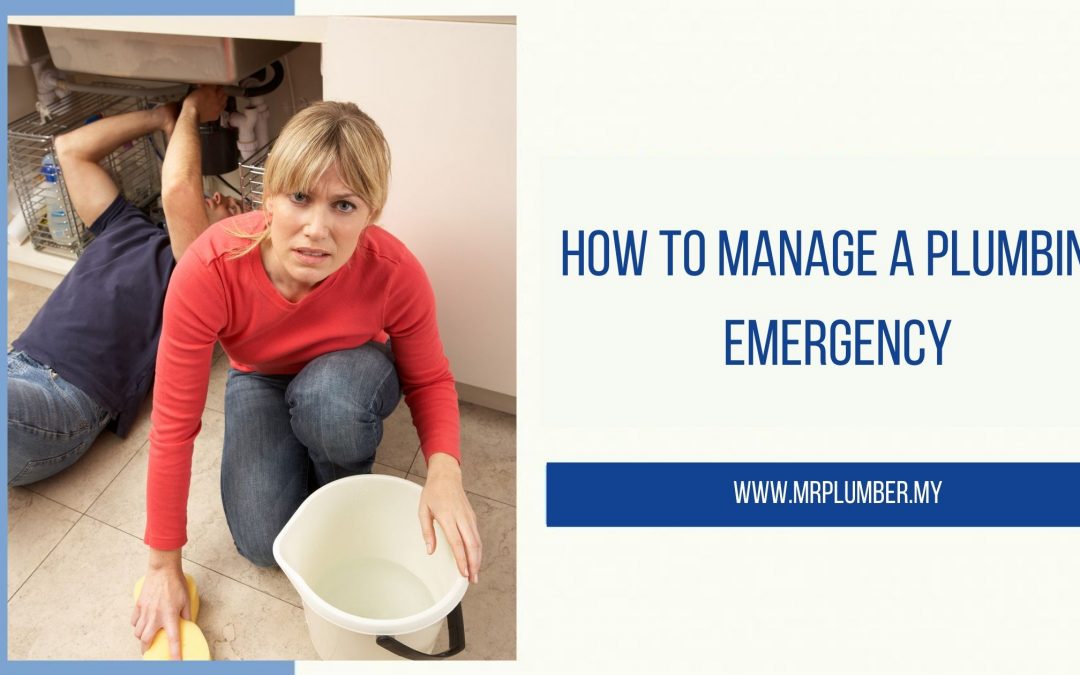Encountering a plumbing issue can be a source of significant stress, particularly if you lack a dependable emergency plumbing service at your disposal. Understanding how to effectively handle such situations is crucial to prevent exacerbating the issue.
In this blog post, we will discuss five tips for managing a plumbing emergency in your home or business.
These are just basic guidelines and not an exhaustive list of what to do in every emergency situation, but they should help get you started when dealing with any plumbing issues!
Table of Contents
Stay Calm Even With Plumbing Issues
Among the things you should never forget when managing a plumbing emergency is to stay calm. Although plumbing issues can be stressful, you should never panic and make matters worse.
This is a mistake most people make when experiencing emergency plumbing issues for the first time.
Instead, it is important to take stock of what you are dealing with and assess the situation before deciding on a course of action.
Remember that emergency plumbers have been trained in how to handle all types of situations and will be able to help if called upon!
Once you’ve gathered your strength and mind, we can now proceed to the next step.
Turn Off Your Water System
Before anything else, you should turn off your water system to stop the flow of water and avoid flooding.
This is an emergency plumbing task that requires you to find the main valve, which usually has a large handle on it with words like “Water” or “Service”. Turn this valve until there’s no more running sound and most importantly-no more flow of water!
If you can’t locate your main valve, you may want to call emergency plumbing professionals for help.
Failing to do this will only make things worse and will cause you to have more water damage on your property.
Identify The Location of The Plumbing Problem
Once your main valve has been turned off, the next step is to identify the location of your plumbing emergency.
The emergency plumbers will need to know where it is so they can get there as quickly and efficiently as possible.
Once you’ve identified the issue, take note of things like inconsistent water pressure, no running water, or a strange smell coming from somewhere in your home or business establishment.
If you don’t find anything wrong after checking these areas, then call emergency plumbing services for help! Remember that with an emergency, time matters more than ever before, so be sure not to waste any unnecessary moments trying to figure out what’s going on by yourself!
It may also be helpful if you had knowledge about different types of emergencies and their potential solutions beforehand – this way when dealing with one, you’ll know what to do.
Fix The Plumbing Issue
The next step, after discovering the cause of the problem, you need to take out your plumbing tools and fix the issue.
One of the basic tools you need to have when dealing with plumbing emergencies is a wrench, which helps you tighten joints and nuts on pipes.
Another emergency plumbing tool is a plunger – this can be used to help get rid of debris blocking the toilet bowl or sink drain when water won’t go down. It’s also useful for clogged toilets, as it creates pressure that forces drainage from the bottom of the toilet through its flushing mechanism. Additionally, a plunger can also be used for fixing a loose toilet handle. By using the plunger to create suction and hold the handle in place, you can easily tighten the screws or bolts that are causing the handle to be loose. Overall, a plunger is a versatile tool that can be used for a variety of emergency plumbing situations.
In case you cannot fix the issue with these tools, you may need additional equipment such as an auger snake (for unclogging drains), mop bucket pump assembly (mopping up after flooding), and more!
Call a Professional Plumber
If all else fails, you need to call emergency plumbing services.
The first thing you need to do is identify the emergency plumber in your area, then gather all the information that they need so they can provide assistance with no delay! Make sure you have a complete list of emergency numbers handy and quick access to these contact details for better response time.
It’s also important to keep emergency phone numbers on hand for faster help when needed- this way, there will be less waiting around and more action was taken by those qualified professionals who know how to deal with any type of emergency.
Takeaway
The final conclusion to this blog post is that you need to know how to manage a plumbing emergency and take the necessary precautions.
This article has given you some basic tips on what you should do in case of an emergency, but if anything seems unclear or confusing, please contact us for more information.
We want your home’s pipes flowing smoothly, so don’t hesitate to reach out!

